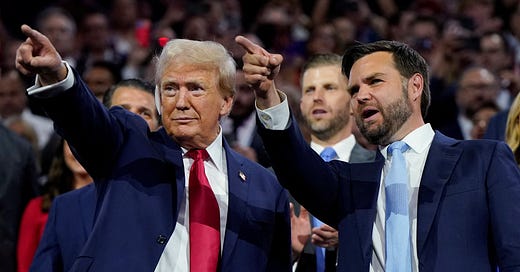Trump Bullet Incapacitated Biden
Trump's foreign policy an urgent issue for allies again, Tragedy of Biden: a cruel exit after 50 years in politics,
Trump's foreign policy an urgent issue for allies again
US election: Critics label the Trump-Vance ticket as isolationist in foreign policy, but the pair actually want American priorities reordered to take on China.
By James Curran (AFR)
Among the swirling currents of American politics, US allies are once more tossed about as corks on the ocean.
Donald Trum…





